A big tenant of the one plane golf swing is to return the golf club back to the same position it was (in terms of the shaft plane line) at address. That’s what
Moe Norman and Ben Hogan did.
But let’s see how some of the top golfers in the last 10 years fare as far as that
is concerned.
1.
Tiger Woods
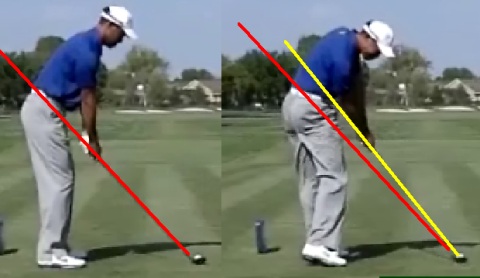
2.
Adam Scott

3.
Phil Mickelson
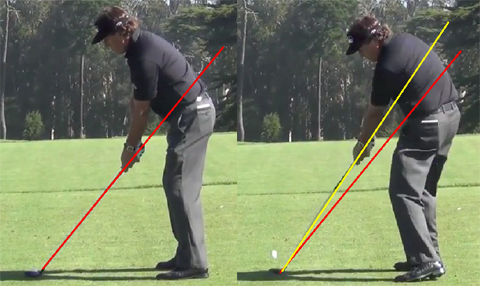
4.
Rory McIlroy
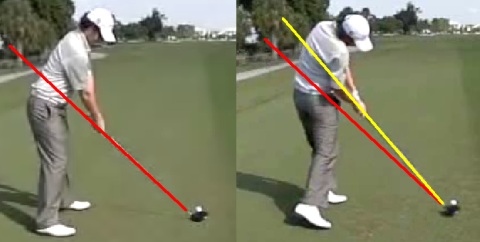
5.
Justin Rose
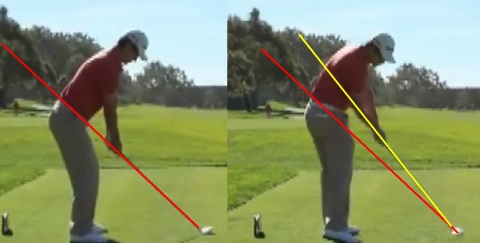
6.
Henrik Stenson

7.
Matt Kucher
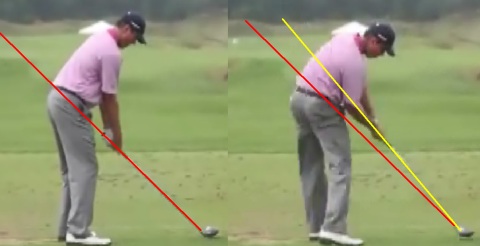
8.
Brandt Snedeker
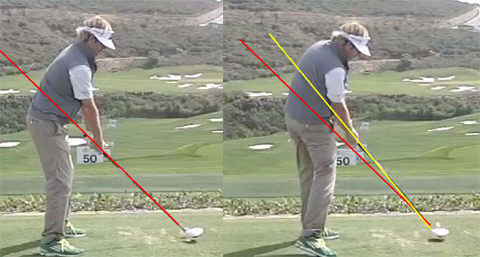
9.
Steve Stricker

10.
Jason Duffner
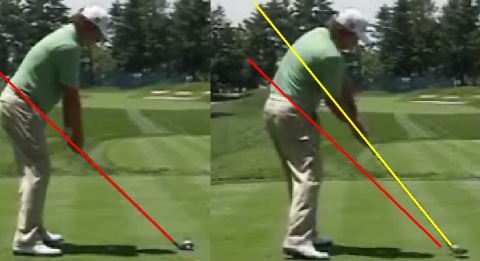
So 9 of the top 10 golfers in the world over the last 10 years DO NOT return
the clubface to the same plane line that they started at at address (Steve Stricker
does).
Why did I show you that?
Because I believe the plane line should be more vertical than a one plane swing, and
not as vertical as a two plane swing. Somewhere in the middle. A great model
I’m going to show you in a minute for this, is Louis Oosthuizen.
But
these impact pictures begs the question… are they trying to do that?
The
answer is no!
Because
it’s been proven that the golf swing is moving way too fast at impact to consciously
do anything. So what is happening at impact is this…
The forces
are so great at impact that the hands are being pulled up. That’s just a natural
occurrence of the modern, powerful golf swing.
So
that got me thinking how it would be good to swing on a plane that is similar
to what happens at impact. Because you can talk all you want about one plane
and two plane swings (in terms of the backswing and shoulder plane, left arm
angle etc.). But at the end of the day, it’s what happens at impact that matters.
So
my Hybrid Golf Swing Plane theory, is to swing back so that at the half-way
point in the golf swing the club shaft points down at the ball. Then at the
half-way point in the downswing, the clubshaft again points at the ball. I’m
now going to show you this theory in action in one of the best swings on the
planet.
Louis
Oosthuizen is the 2010 Open Champion and has a golf swing that many believe
is one of the best among professional golfers. So let’s put my swing plane theory
to the test, and I’m going to draw a line through his setup at address right
through the middle of his back.
Setup
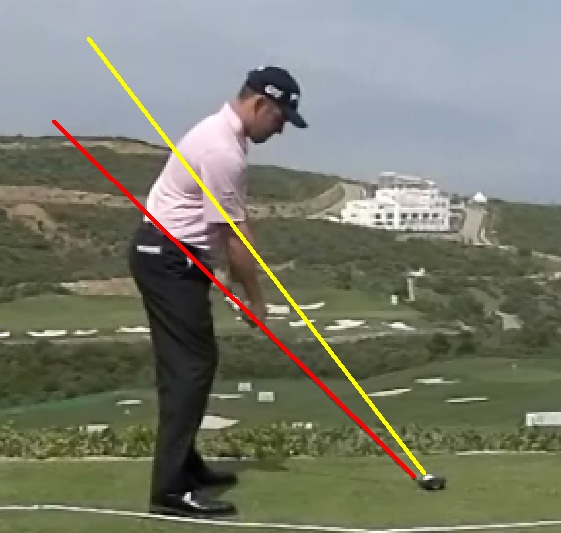
Half-Way
Back
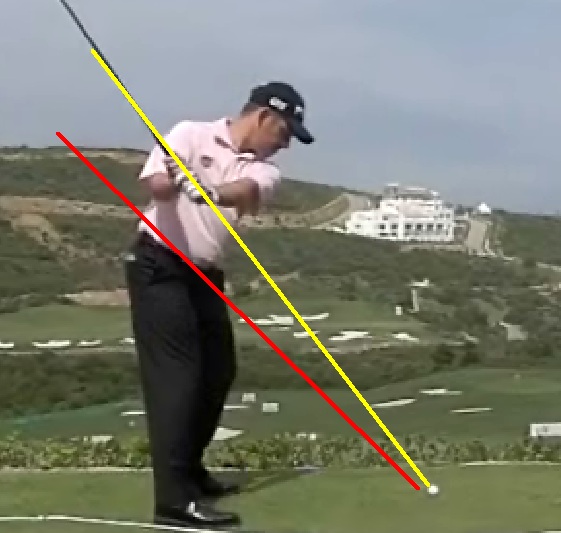
Half-Way
Down
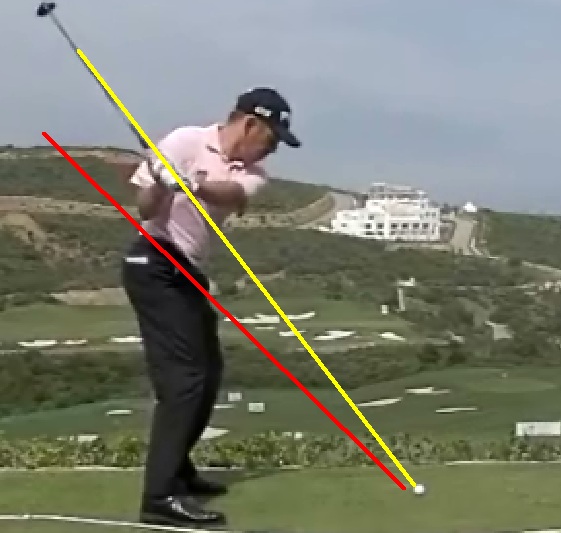
Impact
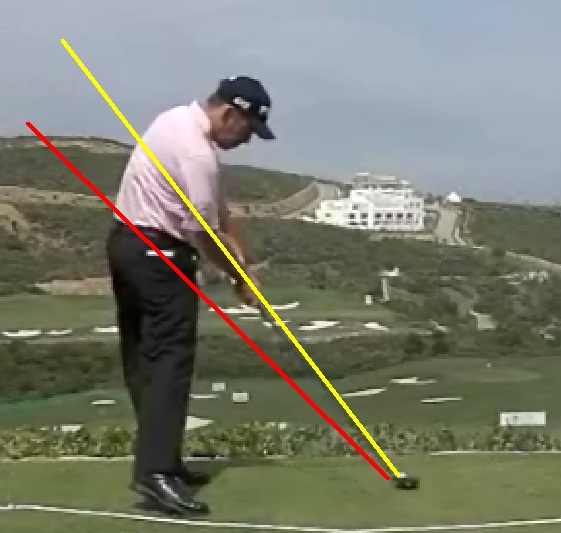
Follow-Through
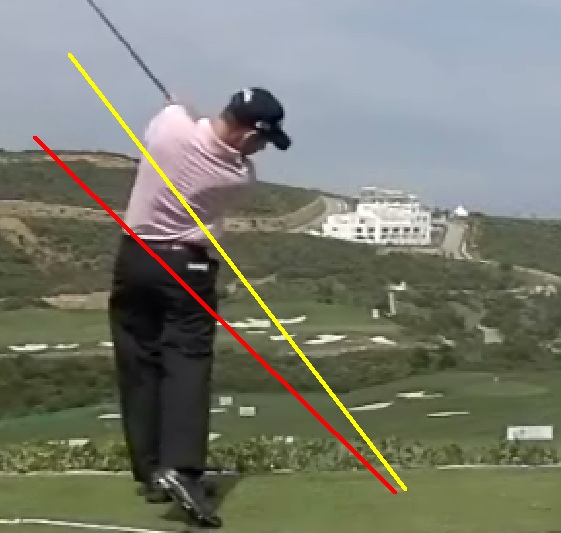
Pretty
damn good swing, with a very consistent swing plane!
If
you remember, in my last article I said a way to see if a person swings on a
one plane swing, is to measure at the top of their swing the angle of the left
arm and the shoulders. And if there’s less than 12 degrees difference then they
have a one plane swing. Let’s see what the difference is for Louis:
Louis
Oosthuizen – 22 Degrees Difference
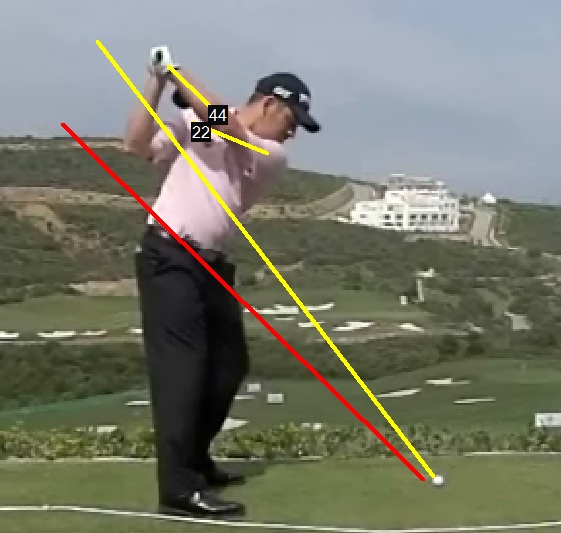
Compare
that to Moe Norman and Jim Furyk. Extremes of a one plane and two plane swing:
Moe
Norman (One Plane Swinger) – 0 Degrees Difference
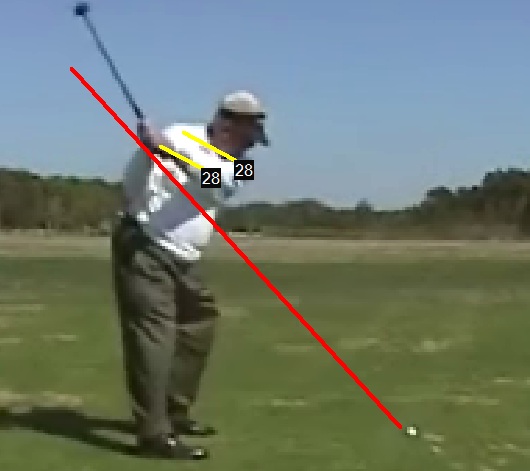
Jim
Furyk (Two Plane Swinger) – 48 Degrees Difference
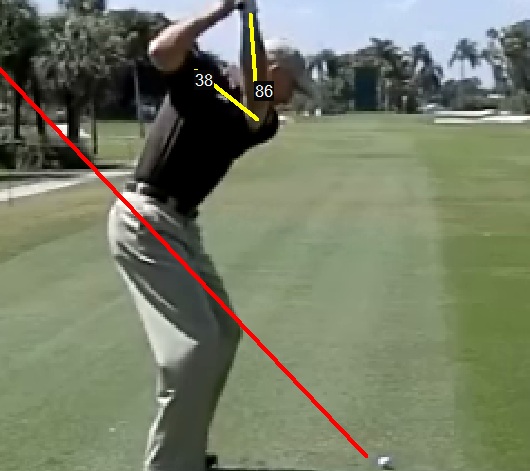
And
if you split the difference between those extremes you get 24 degrees. Louis
Oosthuizen at 22 Degrees Difference is almost bang in the middle.
And
this swing plane that Louis uses is what I term “The Hybrid
Swing Plane”. I have a swing plane program in which I’m going
to teach you how to groove a consistent golf swing plane like this… so watch
out for an email about that program soon.
Having
a consistent golf swing plane will help you to hit straighter, longer and more
consistent golf shots. So if you lack consistency in your ball striking, working
on making your golf swing plane more consistent can only aid you in improving
your ball striking consistency.
I hope this series I’ve given you on the swing plane has clarified a lot of
issues you had with understanding the swing plane. And I hope that now you have
a very clear idea on what swing plane you should be swinging back, down and
through on.
____________________________________________________
hope you enjoyed that swing plane series by Jeff Richmond. Jeff has a
great program that helps you to build a consistent swing plane. I’m trying
to get a deal on that program for you. Hopefully I will be in touch later
this week with some good news. (Your Signoff
Here)



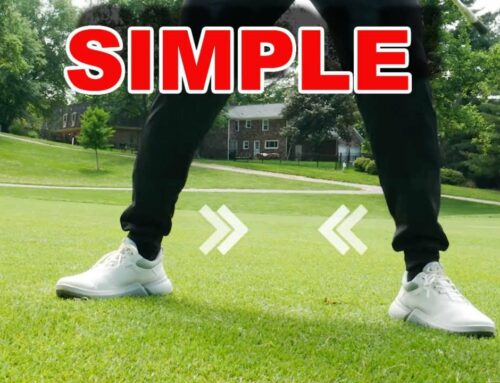
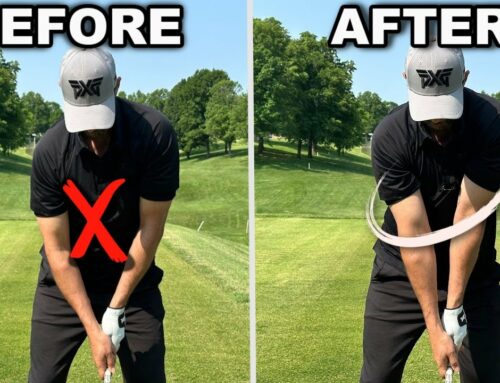
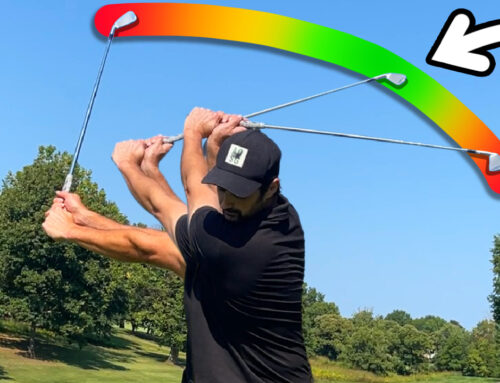

Leave A Comment